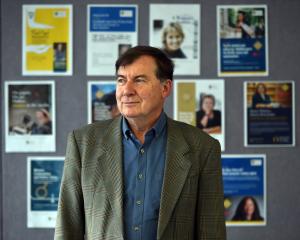
The university "fees-free" scheme has been reversed, as this year’s Budget changes the eligibility from first-year students to students in their last year of study.
Tertiary Education Minister Penny Simmonds made the announcement yesterday.
"The first year fees-free policy was an expensive failure and did not deliver its aim of more students going into tertiary education, nor did it increase participation rates. In fact, there were fewer full-time equivalents in tertiary education in 2023 than there were in 2017," she said.
"So we’re changing the fees-free scheme from the first year to the last year of study, which is a much better way to incentivise students to complete their studies."
The change was part of the government’s coalition agreement with NZ First, she said.
Otago University Students’ Association president Keegan Wells said she was "disappointed, but not surprised" by the change.
"Moving the fees-free model to a final year undermines the intent of the original scheme.
"It was intended to act as a stepping-stone to get people into higher education and it seems to have been scrapped with no regard to that.
"There are already cost barriers to getting into higher education."
Labour tertiary education spokeswoman Deborah Russell was also concerned.
"Transferring fees-free to the last year is worrying. At a time where unemployment is going up these changes will make the tertiary education sector inequitable and lock some people out of study."
When the Otago Daily Times asked students on campus, the response to the change was mixed.
Miha Mitcalfe-Matthews, a second-year student, said he could see "positives and negatives" for the change.
"First-year would get people into university that wouldn’t usually go into university. You get to try it out, whereas last year, it would help with what you have to pay for at the end.
"I personally would prefer it to be available for the first year of studies."
Isadora Rueckert and Ezelle Schutte were not New Zealand residents when they started university, so both were wondering how the switch would benefit them.
"It would make the final year a lot easier for us," Ms Schutte said.
Cormack Allely, who is studying an electrical course at Otago Polytechnic Te Pukenga, said it would depend on how it was administered.
"I think it’s more beneficial to some people towards the end ... it would be a big weight off people’s shoulders if you’re flatting and in your final year of a business course or whatever.
"Whereas in the first year, it feels like people can come here and go home and there’s no debt incurred."
Sophie Dobson said she disagreed with the changes.
"I think having it in the final year creates a barrier for people wanting to start their education journey."

















